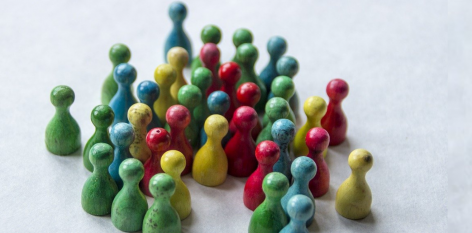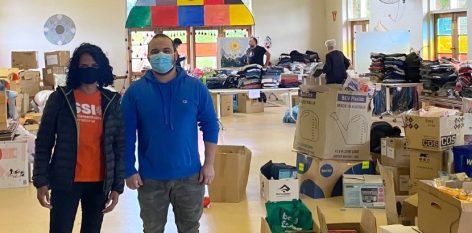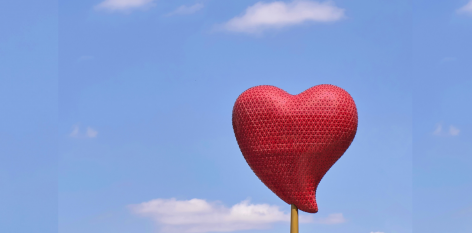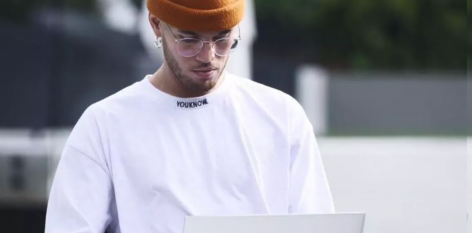In a country urging their citizens to return, I, on the other hand, was frantic to get out. We are the generation that will always remember the day the world went into Lockdown. The contents of any suitcase packed during chaos rarely makes sense. My wardrobe in past overwhelm has seen neon tights for family illnesses and tagged evening dresses for grief – both never worn. Unable to steady my shaking hands, I handed over my passport, like the hundreds of passengers in front of me, where everyone’s facial expressions were unanimous in saying: What do we do next?
This time was no exception. I was unprepared for a pandemic however as an advocate for adversity, I was prepared with a cause.
As we know, physical restrictions can play havoc with our emotional well-being. Often, I would air-embrace my laptop at the end of a call, awkwardly fixate on a moving camera and happily, replace my bra with an over-sized hoodie as my newfound ‘lockdown-look’. (My hope is that one day, data emerges suggesting that productivity improves in the absence of under-wire!). After weeks of enduring human withdrawal, I began calculating a formula along the lines of: How much heart do I need to inject into a digital community to equal impact?
As a Brit to Bondi convert, writer, speaker and global ambassador in women’s health, I attempt to challenge taboos through truth-telling. In the pursuit to normalise differences, I dedicate my spare hours in advocating for a unique condition, MRKH. Mayer-Rokitanksy-Kuster-Hauser (MRKH) Syndrome, which affects one in 5000 females, is defined as the underdevelopment of the uterus, cervix and vaginal canal. Diagnosed at 16 with MRKH, I was practically a child learning to navigate infertility sexual function mid-trauma on my own.
As the co-founder of an Australian based charity, MRKH Australia – a not-for-profit dedicated to people impacted by MRKH – we identify with those who remain in solitude, without hope. We have designed a culture where you can share it all – without even sharing your name.
I often ask, how can we reach the one person who doesn’t even know we exist and yet needs our digital message the most?
Consumed by shame and social exclusion from my late teens to early thirties, I soon learned how to be ‘unseen’. During much of my isolation there was no social media or chat forums. There was just deathly silence – a place in the dark where denial could grow. Today, we are digitally bursting with bold and infectious bravery. We are seeing feeds upon feeds on Youtube where differences are trending and disclosures are highly ranking. Perhaps this is a good thing – could there be a correlation between over-zealous scrolling and adjustment to challenging circumstances?
Self-isolation put our global MRKH community to the test. Could we pull off a world first without spending a cent? Hold a safe, virtual space and coordinate creativity when (I) completely felt out of my creative comfort-zone? Yes, we could! And we did.
In just four weeks, we rallied up community leaders, speakers, digital storytellers, media enthusiasts and stigma-shakers to create Global Goes Digital – an online event dedicated to our international MRKH community.
London based Health Psychologist Dr Susan Carroll, a co-creator of the event says, “While I love nothing more than the comfort and closeness that comes from meeting others with MRKH in person, going digital allowed us to reach so many more people in so many more places. It allowed people who may never have had the opportunity to attend an MRKH event to test the waters of connecting with others safely, as quietly or loudly as they wished”.
We are Insta-scrollers, reliant upon social medial statistics to direct us and validate us. In today’s rattled and emotionally exhausted world, are we capable of trending real change? Are we able to keep heart and humanity through a screen?
Altering societal norms on the topic of sexual identity, shame and suffering has been an arduous task. We share office walls and corridors with those experiencing infertility challenge and grief – yes, infertility grief is a real thing. Exposing this topic globally for those seeking acceptance requires a desire to build friendships with strangers. We cannot soften the iron-clad walls of the internet into a safe haven, without personalising our purpose – that being, the creation of unrestricted relationships in societal restriction.
As we opened the Zoom waiting room for our Global Goes Digital event – we were flooded with digital waves (literally). Our speakers represented countries from Africa, Canada, South Korea, America, Australia, Ireland and the UK. Our program headers ranged from topics on diagnosis, treatment options for vaginal lengthening, sex and relationships and psychological adjustment for those with MRKH. Whilst many of us are digital users, we must not forget the symbolic ‘2004 user’, who has no access to the internet or online support. Who hasn’t caught up with the modern-day movement towards empowerment. Who quietly sends a WhatsApp message before taking their own stage asking, ‘can I do this?’.
The reason for our success – for needing to increase our (free) tickets cap was because we created a magnetic story. As someone who frequently talks about ‘down there’, I believe I’m well-versed at this sort of script writing. We are all writing disclosure scripts as experts of our own experiences. In my collective of fellow truth-tellers, I have witnessed such humble bravery because their secret is the part of themselves that requires a woman’s fierceness the most.
We have built a community on never trying to repeat another’s story.
For generations, we have been sharing stories in one circle or another. Whether the story is disclosed within an eating disorder therapy group, a bible study corner, an alcoholics anonymous meeting, or at a convention centre – at the core of these connections is empathy through lived (and loved) experiences. A storyteller’s stage simply asks for no judgement, no pre-requisites and certainly, no perfection. Where there is story, there is possibility for disruption and belonging. There is virtual and unbreakable connections generated from both the heart and the truth.
In media pitches, news feeds and personal posts I define myself as a truth-teller; a woman who will be shaped by my past, but not defined by it. I never suspected I would launch a charity or an international event from my bedroom. But I managed to do it – with truth, humanity and digital heartiness at the core.




